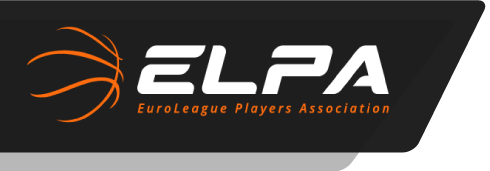 Researched mainly for physical performance, but creatine may also provide cognitive benefits.
Researched mainly for physical performance, but creatine may also provide cognitive benefits.
Creatine is traditionally recognized as a safe and effective supplement for improving exercise performance, with many studies confirming its beneficial effects in basketball and other team sports. The potential interest of creatine supplementation for elite basketball players could be related to an increased ability to perform repeated high-intensity exercise bouts, either during training or during competition (Mujika and Padilla, 1997). However, taking creatine appears to affect athletic performance beyond skeletal muscles, since supplemental creatine can also improve brain functioning by providing necessary energy boost (and more) for this high-demanding organ.
There is potential for creatine supplementation to improve cognitive processing (Roschel et al., 2021), especially in conditions characterized by brain creatine deficits, which could be induced by acute stressors seen in basketball as well (e.g., heavy training, sleep deprivation). Besides acting as a rapid energy donor, creatine can reduce the formation of reactive oxygen species in the brain, functioning as a powerful neural antioxidant and protectant. Few interesting studies summarized below provided first evidence about specific impact of creatine for brain function.
For instance, creatine supplementation (20 grams per day for 7 days) counteracts the mental fatigue-associated impairment in sport-specific psychomotor skills among healthy men and women who performed a 90-min Stroop task (VAN Cutsem et al., 2020). Creatine is good for women too – a total of 128 young adult females consumed 20 g of creatine supplement for 5 days, and creatine supplementation resulted in better memory in vegetarian individuals. In addition, irrespective of dietary style, creatine decreased the variability in the responses to a choice reaction-time task (Benton and Donohoe 2011). Creatine supplementation also positively affects brain blood oxygen level and memory span in healthy volunteers (Hammett et al., 2010). Interestingly, a mixture of creatine and GAA (guanidinoacetic acid) (3 grams of creatine and 1 gram of GAA) up-swings brain creatine content after 4 weeks across various brain regions in active men and was superior to creatine alone to improve bench press performance and provide less weight gain (Semeredi et al., 2019).
In addition, creatine has a potential to improve acute and subacute health outcomes after traumatic brain injury (Institute of Medicine, 2011), which might be highly relevant for athletes who suffer sport-related heat trauma. Sakellaris and colleagues investigated the effects of creatine supplementation (0.4 g/kg for 6 months) after traumatic brain injury and found that creatine can reduce post-traumatic amnesia and improve recovery, cognitive function, headaches, dizziness and fatigue, as well as language articulation and understanding (for a review see Ainsley Dean et al, 2017). Intriguingly, the greater effects are achieved by pre-emptive supplementation in at-risk groups.
Creatine is thus a promising nootropic and basketball players (particularly those who do not eat meat) could experience several benefits from creatine for their brain function. This could happen particularly during the initial period of consumption when following loading regimen (e.g., 20 grams per day). Still, more studies are needed to confirm and further elaborate this effect of creatine, while developing optimal creatine protocols and more bioavailable alternatives that could reach the brain easier. Therefore, next time you take creatine, consider your brain as a second target and enjoy!
Athletes suffering from moderate to severe kidney or liver diseases should consult a health professional before taking creatine or any other dietary supplement.
Authors: Sergej M. Ostojic, Francesco Cuzzolin, Julio Calleja-Gonzalez, Igor Jukic, Baris Kocaoglu, Jaime Sampaio, Mar Rovira.
EuroLeague Players’ Association and ELPA Performance Advisory Board present 1st ELPA Performance International Congress (EPIC), which will be held online on May 29, 2021. Renowned experts from different professional fields will share their latest scientific researches, methodologies and experiences with the wider basketball and sports community on the topics of performance, strength & conditioning, nutrition, data science, sports psychology, traumatology, and others.
- Date: May 29th, 2021
- Location: ONLINE
- Registration fee: FREE OF CHARGE
- More infos: https://www.elplayers.com/elpa-performance-international-congress-29-may-2021/
Further readings
Ainsley Dean PJ, Arikan G, Opitz B, Sterr A. Potential for use of creatine supplementation following mild traumatic brain injury. Concussion. 2017;2(2):CNC34. Published 2017 Mar 21. doi:10.2217/cnc-2016-0016
Benton D, Donohoe R. The influence of creatine supplementation on the cognitive functioning of vegetarians and omnivores. Br J Nutr. 2011 Apr;105(7):1100-5. doi: 10.1017/S0007114510004733. Epub 2010 Dec 1. PMID: 21118604.
Hammett ST, Wall MB, Edwards TC, Smith AT. Dietary supplementation of creatine monohydrate reduces the human fMRI BOLD signal. Neurosci Lett. 2010 Aug 2;479(3):201-5. doi: 10.1016/j.neulet.2010.05.054. Epub 2010 May 24. PMID: 20570601.
Institute of Medicine (US) Committee on Nutrition, Trauma, and the Brain; Erdman J, Oria M, Pillsbury L, editors. Nutrition and Traumatic Brain Injury: Improving Acute and Subacute Health Outcomes in Military Personnel. Washington (DC): National Academies Press (US); 2011. 10, Creatine. Available from: https://www.ncbi.nlm.nih.gov/books/NBK209321/
Mujika I, Padilla S. Creatine supplementation as an ergogenic aid for sports performance in highly trained athletes: a critical review. Int J Sports Med. 1997 Oct;18(7):491-6. doi: 10.1055/s-2007-972670. PMID: 9414070.
Roschel H, Gualano B, Ostojic SM, Rawson ES. Creatine Supplementation and Brain Health. Nutrients. 2021 Feb 10;13(2):586. doi: 10.3390/nu13020586. PMID: 33578876; PMCID: PMC7916590.
Semeredi S, Stajer V, Ostojic J, Vranes M, Ostojic SM. Guanidinoacetic acid with creatine compared with creatine alone for tissue creatine content, hyperhomocysteinemia, and exercise performance: A randomized, double-blind superiority trial. Nutrition. 2019 Jan; 57:162-166. doi: 10.1016/j.nut.2018.04.009. Epub 2018 May 17. PMID: 30170305.
VAN Cutsem J, Roelands B, Pluym B, Tassignon B, Verschueren JO, DE Pauw K, Meeusen R. Can Creatine Combat the Mental Fatigue-associated Decrease in Visuomotor Skills? Med Sci Sports Exerc. 2020 Jan;52(1):120-130. doi: 10.1249/MSS.0000000000002122. PMID: 31403610.
Institute of Medicine (US) Committee on Nutrition, Trauma, and the Brain; Erdman J, Oria M, Pillsbury L, editors. Nutrition and Traumatic Brain Injury: Improving Acute and Subacute Health Outcomes in Military Personnel. Washington (DC): National Academies Press (US); 2011. 10, Creatine. Available from: https://www.ncbi.nlm.nih.gov/books/NBK209321/




